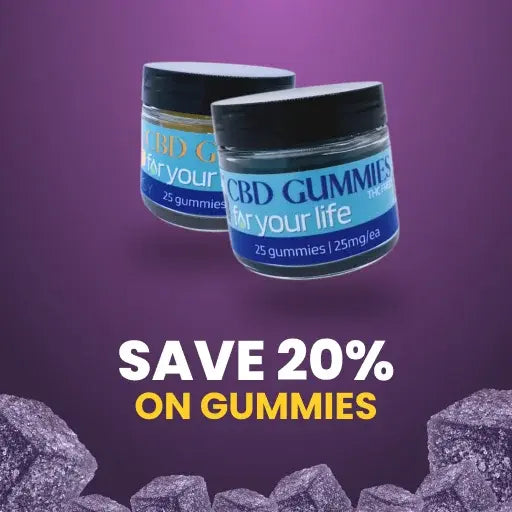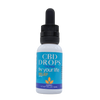Must-Know CBD FAQS for Baby Boomers

The cohort commonly known as the "Baby Boomers" and those belonging to the "Post-War" generations, aged between 58 and 94, are now turning their attention to cannabis as a potential solution for addressing health concerns related to aging. This demographic is embracing or rediscovering the therapeutic properties of cannabis to alleviate various age-related ailments and promote overall well-being.
| Born | Ages | |
|---|---|---|
| Boomers II* | 1955 – 1964 | 58 – 67 |
| Boomers I* | 1946 – 1954 | 68 – 76 |
| Post War | 1928 – 1945 | 77 – 94 |
That’s where hemp-based CBD comes in. Cannabidiol CBD has none of the negative side effects of some pharmaceuticals.
This isn’t about getting “high”. While some members of this group have used cannabis in the past when they were young, today’s cannabis is not the same as it used to be 40-50 years ago. Many marijuana strains have THC percentages way above what you might remember. One bad experience with a high THC % strain could turn someone off cannabis altogether. However, we are here to tell you that hemp-based CBD products are beneficial in so many ways and there is no “high” feeling to worry about.
Hemp-based CBD could be just the answer you’ve been looking for.
To help with your concerns, we’ve put together some CBD FAQ’s for Baby Boomers regarding the industry from people just like you; confused and amazed at how a molecule like this can actually work.
1. What is CBD?
CBD, or Cannabidiol, is one of numerous organic molecules found within the Hemp & Cannabis plants. This molecule interacts with a humans naturally occurring Endocannabinoid System, or ECS. The ECS helps regulate the bodies homeostasis processes; such as sleep cycles, blood pressure, body temperature, and more! The 2018 farm bill passed making CBD derived from 100% Industrial Hemp completely legal in the United States.
2. Isn’t CBD in Cannabis? How are Hemp-derived CBD products any different?
Yes, CBD is found in both Cannabis (Marijuana) and Hemp plants, but it’s the same molecule either way. CBD is CBD; its originating source doesn’t change the molecule itself.
Naturally, the Hemp plant contains higher levels of CBD compared to Cannabis plants. Both plants flower beautiful buds, but have contrasting effects on the mind and body due to the different levels of CBD & THC molecules in each plant. Hemp is rich in CBD, but low in THC; vise versa for Cannabis plants.
3. Will I get high off CBD?
No, you will not become impaired from using CBD. This stigma is typically confused with it’s cousin molecule, THC, that produces that impaired feeling in it’s users.
4. What’s the difference between CBD oil and Hemp oil?
Hemp oil and CBD oil are not the same thing, and are easily confused for each other. Hemp (seed) oil usually doesn’t contain any cannabinoids, unlike hemp-derived CBD oils, which are oils infused with the cannabinoid itself.
5. What’s the difference between Isolate, Broad Spectrum, & Full Spectrum CBD products?
While yes, CBD is CBD; there are distinct differences between the popularly known Isolate CBD, Broad-Spectrum CBD, & full-spectrum CBD based products. It must be noted that CBD is only one of over 100 different cannabinoids found in the Hemp plant.
Isolate means that the CBD molecule has been isolated by itself, resulting in a fine white powder that can be infused into oil, creams, food, and more.
A broad spectrum CBD base is going to include the CBD molecule, as well as small amounts of other molecules like CBN, CBG, and excluding any and all THC. Broad spectrum allows more phyto-cannabinoids to enter the body, providing more amplified effects compared to a plain Isolate.
A full-spectrum CBD base contains everything in a broad spectrum CBD base, but it contains trace amounts of THC (less than .03%). A full spectrum has been found to be the most beneficial long-term.
When you compare an Isolate product to a full-spectrum, it has been shown that Isolates show a bell-curve effect when it comes to tolerance. This means you have to keep increasing your dose of an Isolated product. Eventually, it provides little to no effect. A full-spectrum CBD product will not adhere to your tolerance; therefore making it a more beneficial long term product.
6. Can I drive with CBD in my car? What about flying?
Yes, it is completely safe to drive with Hemp-derived CBD products. Since CBD derived from Industrial Hemp is legal in the U.S you shouldn’t have any issues. There is no official law stating that one cannot drive with this product being sold across the nation, it tends to be more of a personal fear. Of course, state laws vary, so always check to see what the current laws are in your area.
Flying can be a stressful topic for most, especially because of TSA. Since CBD oils under .3% THC levels are legal, most CBD oils are not a threat to airport security. As stated by tsa.gov, “TSA’s screening procedures are focused on security and are designed to detect potential threats to aviation and passengers. Accordingly, TSA security officers do not search for marijuana or other illegal drugs, but if any illegal substance is discovered during security screening, TSA will refer the matter to a law enforcement officer.” CBD may be checked in your suitcase or brought on the aircraft in a carry on bag.
7. Will I fail a drug test?
It is possible to fail a drug test for THC when consuming a full-spectrum CBD infused product. CBD isolate and broad-spectrum products that show test results of 0 THC will not likely show up on a drug test.
If you are worried about failing a test, stick to Isolate or Broad-Spectrum CBD products (THC-Free). If a test doesn’t apply, we recommend going with a Full-Spectrum CBD product for maximum results.
8. Is CBD legal in all 50 states?
Hemp-derived CBD is legal in all 50 states, but it is not legal yet federally legal when derived from Marijuana.
Any product from the Marijuana plant will usually contain more than the legal amount of THC, which is .3%. Most Hemp plants tend to contain less than .3% THC, so the products have been deemed legal. If your CBD is Marijuana-derived, then it’s not legal in the United States of America, yet.
9. Can I overdose on Cannabidiol? Are there any negative side effects to taking CBD?
CBD has been known to be a non-intoxicating organic molecule; meaning it doesn’t impair it’s user. This does not mean it can’t have adverse effects on the body, and there is still limited research available to document all of the effects of CBD on different body types, with different conditions, diseases, and ailments. However, the WHO has indicated that “preparations considered to be pure cannabidiol (CBD) not be placed under international drug control as the substance was not found to have psychoactive properties, and presents no potential for abuse or dependence.”
We always recommend to start low, and go slow when it comes to dosing and starting out on CBD.
10. Will CBD interact with my medications? Should I tell my Doctor I am taking CBD?
Cannabidiol is currently being studied for this exact reason. When you take a medication, your body has to metabolize, or break down, the compounds. An enzyme called CYP450, found in the human body, is responsible for transforming foreign substances in the body to be eliminated from the body through the liver in an easy process.
Some substances can cause an interaction with the CYP450, similar to the common ‘grapefruit warnings’ found on many medications. By changing the rate of metabolism, CBD may create effects synergistically that were not originally intended by the medications original design and purpose.
If you are taking CBD with any other medications, it’s important to discuss the topic and regimen with your healthcare provider. Most doctors have the ability to perform pharmaceutical tests to ensure there are no negative interaction effects, so you may still safely take CBD with medications having the grapefruit warning, but only with doctor supervision & guidance.
11. What am I going to experience when I dose CBD? What are the potential health benefits & risks?
In general, the effects make you feel relaxed, calm, or ‘chill’, but range from person to person, and ailment to ailment. Here at Cannafyl, we describe it as if when the CBD begins to onset, the symptoms almost feel like they ‘release’ from the body.
In higher doses, CBD hemp oil does affect users more potently. Sometimes it does create the adverse effects listed above. Remember, when it comes to taking CBD, or any other cannabinoids, start low and go slow, but it is important to not “give up” until your perfect dose is discovered.
There are many CBD benefits for baby boomers! The human body naturally has an Endo-Cannabinoid System, or ECS, that helps maintain and promote homeostasis within the body through the use of cannabinoids. Through interacting with CB1 & CB2 receptors throughout the nervous systems, CBD helps maintain equilibrium by managing stress, pain, anxiety, etc.
The Baby Boomer and Post War generations are discovering the benefits of natural plant-based wellness. For many this means ditching their multiple prescriptions, some of which might be making them feel worse. The current trend is that doctors and health care professionals are more willing than ever to help you find a health and wellness plan that works for you and that includes hemp-based CBD.
These statements have not been evaluated by the Food and Drug Administration.
-
Posted in
cbd and aging, cbd and sleep, cbd benefits, cbd for pain








